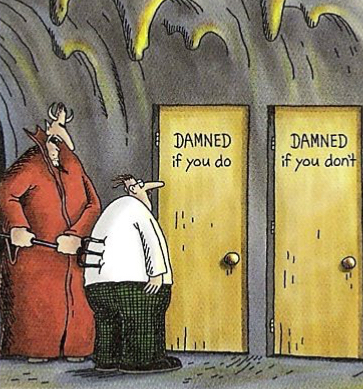Lately, during my work with executive teams, I’ve been asking them to decide who they want to become: a team or a group. In groups, each person has different and important responsibilities, and they can be held together with something as simple as a checklist. However, without one or two of the important members, the group doesn’t function. Think flight crew – no flying without a pilot. Think surgical team – no surgery without the surgeon. These two important groups are held together by understanding how they work interdependently and coalesce around checklists and deep technical expertise.
A team, on the other hand, while it has a captain, can still play if a player is injured, and they don’t have to reschedule the activity; they have someone who can walk on the field and keep things running. Another distinction between a team and a group is that with a group, some people are clearly more important than others, they run the thing, and they’re the reason it’s possible to be a group in the first place. With a team, not so much. Everyone is responsible for working together to win the game – everyone.
When there is organizational dysfunction, theexecutive team needs a leader who can provide them with direction that pulls them through the chaos; in essence, they must operate as a group until they are stabilized. Once stabilized, they can begin the process of team development. Some leadership teams, however, never move beyond the group stage because their leaders won’t or don’t have the skills to develop and transform the group into a team.
So, what’s the big deal with being a team? Why not just remain a group? In a group, there’s a lot of pressure on the CEO. The CEO drives every decision and functions almost autocratically rather than collaboratively because the executive leaders that report to the CEO need constant direction and approval. Groups need only be concerned with their areas, leaving them to operate independently, joined together by meritocratic action items called department goals that roll up into something called a business strategy, which is little more than a fancy name for a checklist. Silos emerge, equity goes out the window, and trust is non-existent because it’s not needed. I trust you to do what you do; hand me the scalpel when I need it, that’s all.
Yuk, who wants that zombie-like relationship?
While there is an increased possibility for interpersonal conflict, rivalry, territorial games, etc., there is so much more value in building a strong executive team. Besides not wearing the CEO out, it makes organizational succession, even temporarily, much easier on the board, key stakeholders, and staff. The organization doesn’t miss a beat. Hiccups may occur, but recovery is much easier. Because they’ve worked through conflict, a team knows how to respond effectively to adversity. They are accustomed to identifying threats and weaknesses and leveraging strengths to overcome them. Because they see one another as their first team, they can trust and rely on the capabilities of each person during tough times and cheer one another on during extreme highs. Their embrace of their roles as drivers of the culture ensures the culture is protected from major disruptions, and they work together to see around the corner. Ultimately, the team’s ability to collaborate provides coverage for the entire organization, not just a business unit.
So, you decide. Would you rather develop as a team or a group?
Pam



